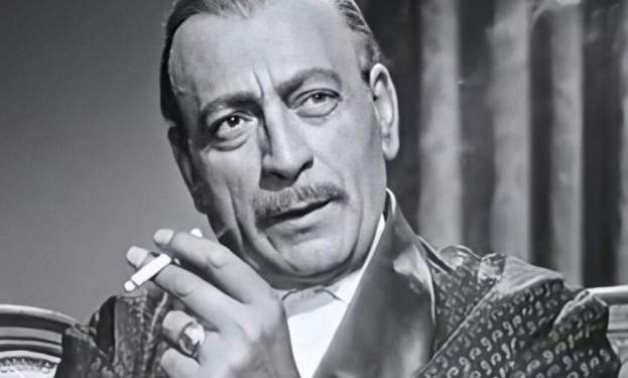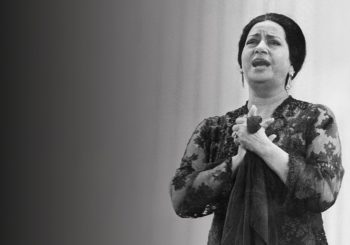Mahmoud Al-Meligy, a figure born into modest beginnings on 22 December, 1910, in Cairo’s Al-Migherbeleen neighborhood, ascended the echelons of stardom that many aspire to but few attain. At just 23 years old, his co-starring role with Fatma Rushdie in “The Marriage” (1933) launched his career into an immediate sensation. This marked the inception of a prolific journey through 350 films.
Al-Meligy’s passion for acting ignited from a very young age when his family relocated to Al-Helmeya neighborhood, where he got the chance to seek out performances by traveling theater groups at the nearby Al-Sayeda Zeinab neighborhood.
His early foray into the world of acting unfolded in the Khedivial High School’s theater, where he proved his talent to dozens of onlookers. This was where the renowned Fatma Rushdie was captivated by his performances; she admired his rising talent, and offered him a spot in her troupe. Over the years, and progressing through various roles, Al-Meligy eventually became the leading man of the company.
Transitioning through various roles, Al-Meligy’s ascendancy came after the disbandment of the Rushdie troupe and joining the Ramses Theatre Company. Youssef Wahbi, the company’s founder, initially assigned him to secondary and supporting roles, at times relegating him to the role of a prompter. His breakthrough came when Rushdie cast him as her co-star in The Marriage, a production she both produced and directed.
From this juncture onward, Al-Meligy embarked on a prolific cinematic journey, ultimately contributing to 350 films. This remarkable feat established him as the most prolific actor in Arab cinema, surpassing both Farid Shawqi and Amina Rizq, who outlived him both on screen and in life.
In his early career, Al-Meligy assumed several minor roles, with notable appearances in films such as Wedad (1936) and A Woman’s Heart (1940). However, it was in Martyrs of Passion (1944) that viewers began to recognize the defining characteristic of Al-Meligy’s screen persona—the villain. This role became synonymous with him, earning him the moniker “The Screen’s Monster.”
Capitalizing on the immense popularity of Farid Shawqi as a valiant hero in the 1950s and 60s, directors used Al-Meligy as his formidable adversary. This dynamic pairing proved successful in action films such as Dock No 5 (1956), Abu-Hadeed (1958), and A Hero Until the End (1963).
The esteemed actor received numerous accolades throughout his illustrious career, underscoring his significant contributions to the world of cinema. Among the honors bestowed upon him are the Medal of Sciences and Arts from the Supreme Council of Arts and Social Sciences in 1964, the State Encouragement Award in 1972, a Certificate of Appreciation at the Art Festival in 1977, and the Gold Medal for First Pioneers.
Beyond entertainment, and in recognition of his stature in society and the arts, Mahmoud l Al-Meligy was appointed as a member of the Shura Council in 1980, further highlighting his influence beyond the realm of entertainment.
Tragically, the cinematic legend passed away on 6 June, 1983, succumbing to a heart attack on the set while preparing to film his final scenes for the movie Ayoub. This unexpected event left the industry and his admirers in profound shock.







Comments (0)